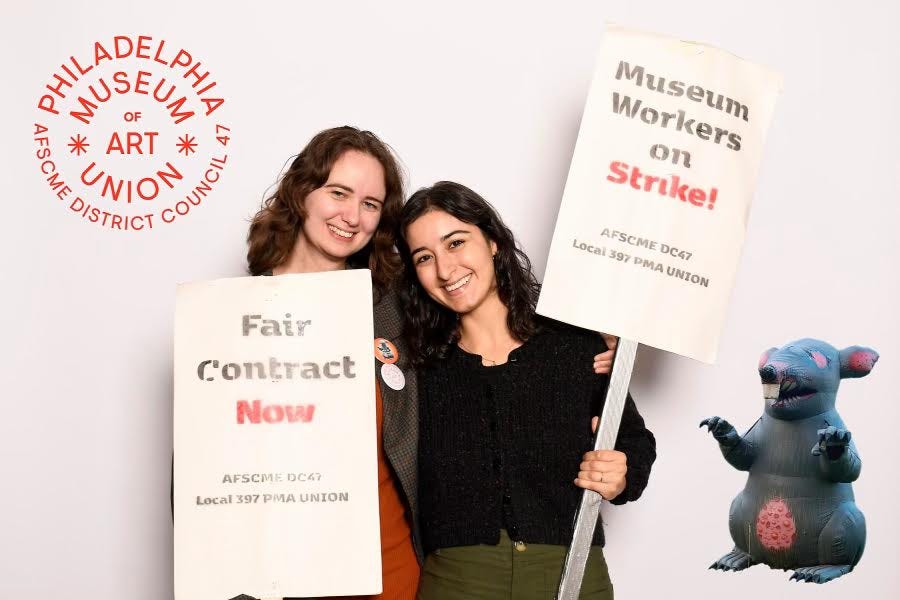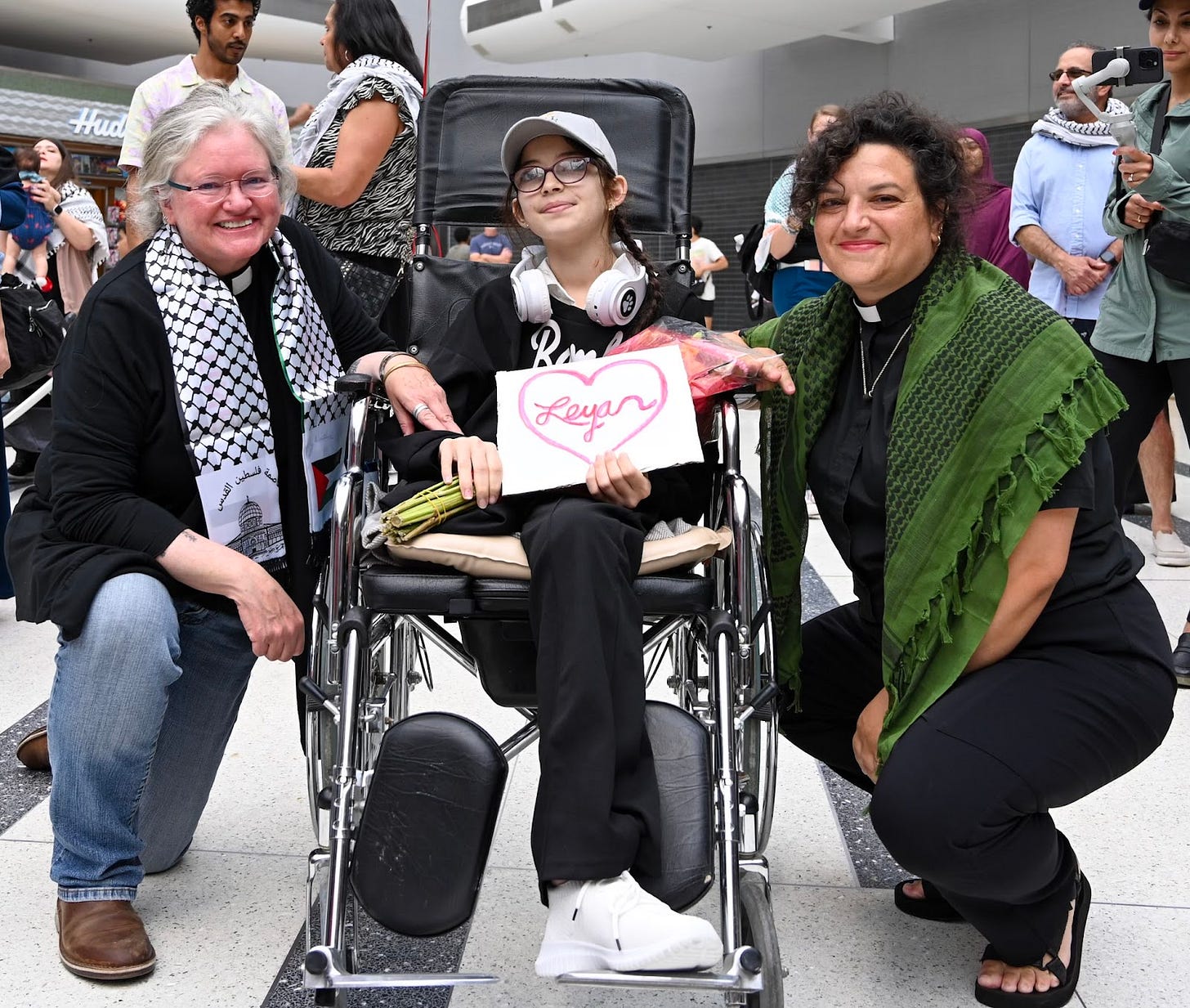City News
A driver hit and killed a 30-year-old CHOP medical resident who was biking on Spruce Street. Mayor Parker's FY25 budget cut funding for Vision Zero by 60 percent, just a few months after she signed an executive order recommitting Philadelphia to the goal of reaching zero traffic deaths.
Union workers at the Philadelphia Museum of Art argue that management is violating their collective bargaining agreement by not allowing some employees to work two days per week from home.
The Federal Transit Agency (FTA) found that SEPTA’s staffing crisis and other operational deficiencies contribute to high accident and injury rates compared with national averages. Compliance with the FTA’s order will require increased spending, while SEPTA's $240 million budget deficit already hangs in the balance.
Standardized patients at Jefferson University who won their union election in January now accuse the University of refusing to bargain in good faith.
A jury convicted former Philadelphia homicide detective James Pitts of obstruction and perjury for using illegal tactics, including physical assault, to get a false confession out of Obina Onyiah in 2010. Oniyah served 11 years in prison for a crime he didn't commit.
Windows are falling from the sides of the Riverwalk Apartments. Residents of these newly-built, “luxury” apartment buildings have been sounding the alarm over falling windows for three years, and the Department of Licenses & Inspections has been issuing PMC Property Group citations since construction began.
Bartram's Garden closed a portion of its Mile Trail after a visitor reported a potential toxic chemical leak from a former refinery site. Councilmember Jamie Gauthier criticized the slow response from the Pennsylvania Department of Environmental Protection, which had been notified of the potential contamination back in April but failed to act.
Healthcare experts testified to members of City Council about the inadequacy of Philadelphia's current addiction treatment programs, which are not extensive enough to address the complex needs of those who struggle with addiction.
State News
Despite record heat, thousands of Pennsylvania prisoners are denied access to air-conditioning.
Pennsylvania recently passed an “Anti-SLAPP Act.” SLAPP is short for “strategic lawsuits against public participation,” and refers to lawsuits attempting to silence individuals who publicly criticize corporations or governments. The new law allows for the quick resolution of certain lawsuits and awards attorneys’ fees to the targets of meritless litigation.
Governor Shapiro says the Abortion Control Act — which prohibits Medicaid coverage of abortion except in extreme cases — violates the state constitution by discriminating against women, so he won't defend the law in court.
The Thorn Q&A with with Halcyone Schiller, President of AFSCME District Council 47, Local 397
AFSCME Local 397 has filed an unfair labor charge with the National Labor Relations Board, alleging that Philadelphia Museum of Art (PMA) management is violating their contract by refusing to allow employees to work from home who previously had permission to do so. The Union’s president, Halcyone Schiller, spoke with The Thorn about the dispute.
The Thorn: PMA workers that were once able to work from home up to two days per week are no longer able to do so. What kind of impact does this have on their lives—and on the day-to-day operations at the museum?
Halcyone Schiller: Advancement (the division in which remote work was revoked) has many people who took jobs and have reshaped their lives upon the understanding that they would be able to work from home for part of their week. The loss of this standard has hurt people on multiple levels, including mentally, emotionally, and financially. This change has significantly worsened morale, with frustration with upper management growing stronger, which, in combination with a chaotic and noisy shared work space, has negative implications on productivity. Beyond this, the PMA is already notorious for underpaying its workers. Requiring staff to be in office for all their work hours represents more money they have to spend on transportation, food, and child and pet care. So, in summation, you have staff unhappier, losing money, and experiencing increased frustration and burnout — and these are the same staff who are expected to raise the largest sums of money for the museum.
TT: This dispute with PMA leadership comes at a time when the union has 22 outstanding grievances. How would you describe the state of the relationship between workers and museum leadership right now?
HS: I think 22 open grievances speaks volumes in itself. Many of the issues we have with management are things that should not have needed escalation, but a lack of communication and trust between workers and museum leadership makes for an environment that often feels to be moving in the opposite direction of labor peace. There is a clear disconnect between executive management and the workers, despite the union’s many attempts to bridge this gap.
TT: This is not the only dispute when it comes to work from home rules. AFSCME District Council 47 is trying to stop a Parker administration decision to require all employees to return to in-person work. Why do you think so many employers are pulling the plug on work-from-home arrangements?
HS: Work from home represents a change that allowed workers to take more control of their own lives, physically, financially, and mentally. We are now operating in a post-pandemic world that isn’t actually post-pandemic, just aggressively capitalist.
The Weekly Rose
Leyan is a 13-year-old from Gaza who traveled to the city this weekend for medical treatment, made possible by HEAL Palestine. Philadelphians and DSA members greeted her at the airport.
Photo credit: Joe Piette






